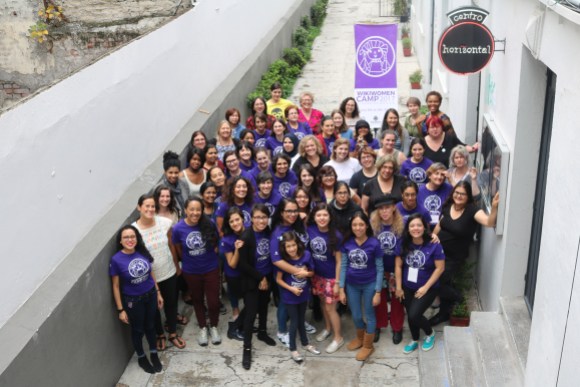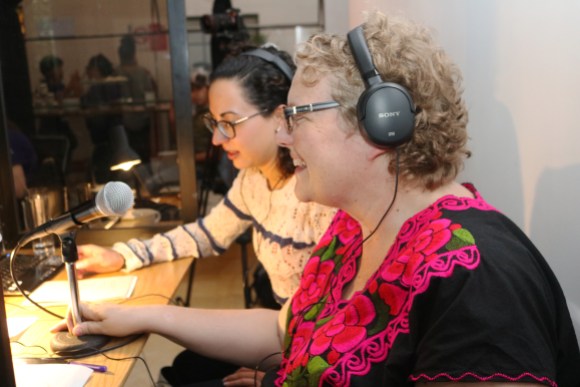
Wikimedia Mexico invited women from all over the world to Mexico City with a question and a challenge: What does a truly inclusive Wikimedia movement look like, and how do we attain it?
The camp dived straight into collaboration, endeavoring to topple one monumental barrier for thousands of editors: Wikipedia’s ever-pervasive gender gap.
Five years in the making, the meetup brought together an all-star team of contributors from every corner of the movement, without whom the event would not have been possible:
- Wikimedia México secretary Carmen Alcázar, who runs Editatona, an ongoing editathon just for women
- Anna Torres, executive director Wikimedia Argentina, who played a huge part in planning this year’s WWC
- Emily Temple-Wood, who writes about women scientists in spite of (and sometimes because) a horde of trolls
- María Sefidari, among the newest member of the Wikimedia Foundation Board of Trustees, welcomed dozens of editors and Foundation staff, including executive director Katherine Maher, who fielded an hour’s worth of Q&A with the community.
- Mexican volunteers—lawyers, chefs, emcees, and many, many more—who were instrumental in keeping the event running smoothly
The importance of women’s participation in editing Wikipedia was already common knowledge among the over 50 WikiWomen in attendance. After all, according to WikiProject Women in Red, less than 20% of Wikipedia’s contributions are from women, and LGBTQ members of the community report feeling excluded—or worse, endangered—by daring to contribute.
The community is working together to combat this trend: Volunteers lead initiatives like Editatona and Women in Red continue to move the needle every day, and Foundation employees have been intensifying their efforts to combat online harassment and increase diversity on Wikipedia, especially during Women’s History Month.
That’s why a large portion of the event was reserved for building better support systems, online and off. Whose voices are we missing from the movement, for example? Who are we inadvertently silencing? How can we make editing safer for trans Wikipedians, who often edit anonymously for fear of being harassed or doxxed online? Wikimedia México even hired translators from Tlatolli Ollin, armed with extensive backgrounds in supporting women’s rights in digital spaces.

The meetup challenged everyone to offer more than just support: more often than not, women were excited to band together in small sessions, learning as much as they could from (and about) each other before the inevitable end of the weekend.
An introductory course on Wikidata, breakout sessions on incorporating editing skills in education, and over a dozen lightning talks inspired each other to start online groups and communities that will hopefully thrive long after WikiWomenCamp has come to an end.
On top of learning new skills and building a stronger offline community, WikiWomenCamp was a fantastic opportunity to talk strategy. Adele Vrana, the Wikimedia Foundation’s director of strategic partnerships, invited the community to tell the Foundation in no uncertain terms what was working, and what isn’t. The responses championed the need for greater connectedness to the movement and each other.
Aubrie Johnson, Social Media Associate
Wikimedia Foundation

Can you help us translate this article?
In order for this article to reach as many people as possible we would like your help. Can you translate this article to get the message out?
Start translation